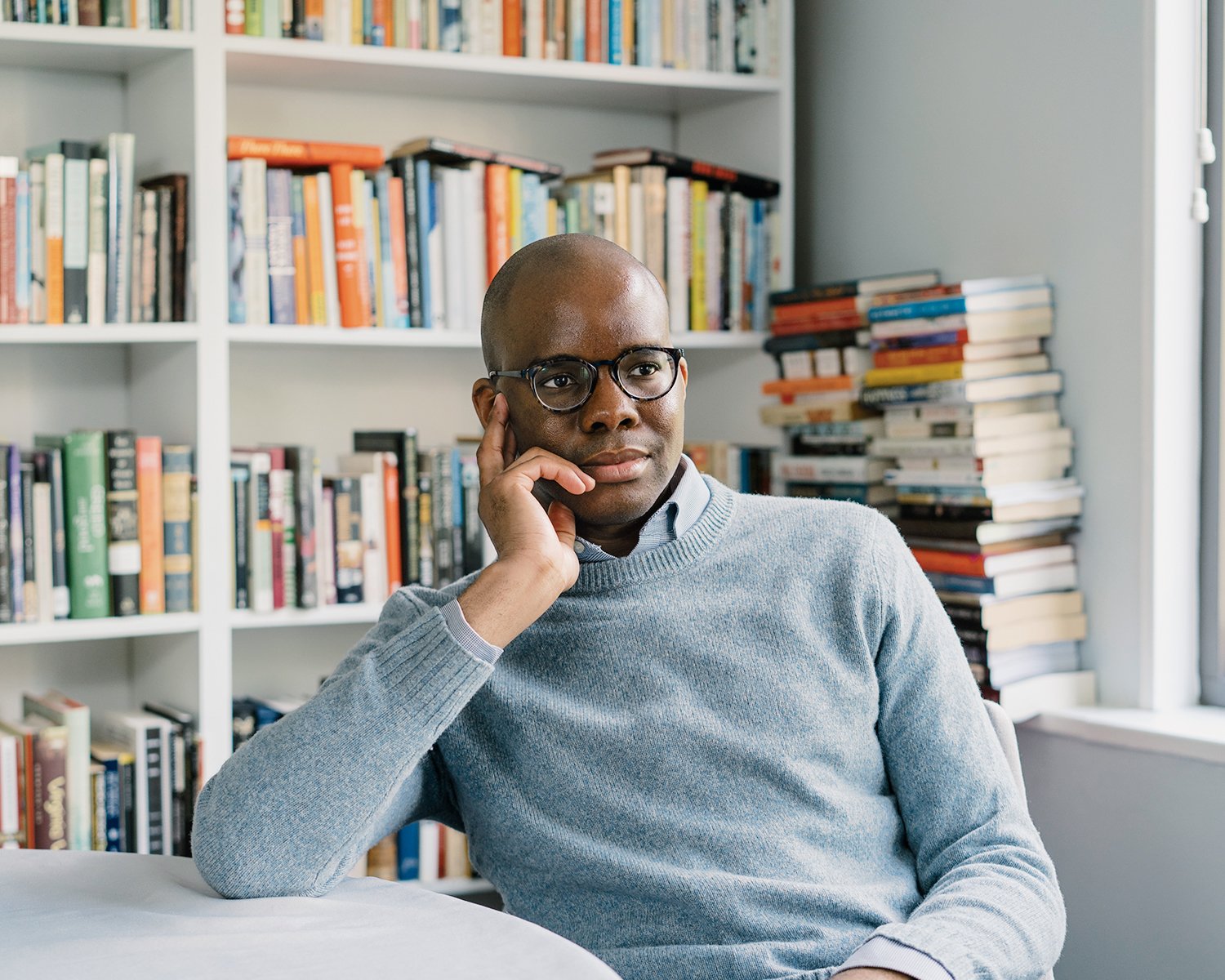When he arrives at a Tenleytown coffee shop, Tope Folarin is conservatively dressed in a sleek, minimalist shirt and pants—with a sunny pair of polka-dot socks peeking beneath his tailored hem. That unexpected pop is a bit like Folarin himself, a policy wonk now earning recognition for his first novel, A Particular Kind of Black Man, published this month by Simon & Schuster.
Like the book’s protagonist, the author is a Nigerian American who grew up in Utah and Texas and went to Morehouse College. But the story, while deeply personal, is fiction. “There are definite parallels between the book and my life,” says Folarin, who is chair of the board of the progressive DC think tank the Institute for Policy Studies and a vice president at the nonprofit Local Initiatives Support Corporation. “But I wanted to write fiction that would work on its own, that could exist outside my head and experience.”
Folarin’s creative impulses took a while to emerge. He had always been intensely achievement-focused, even earning a Rhodes scholarship. But while at Oxford, he finally started to explore. “I had thought that to be successful, I had to be logical, to be rational,” he says. “As I began to read as much as I did at Oxford, I said, ‘I only have one life to live, and if I have this intense feeling that’s telling me to do something, why not give it everything I’ve got?’ ”
That something was writing, and Folarin started to pen stories in his spare time. He began the novel a decade ago, inspired by meeting Gore Vidal at an event: “He said, ‘You should think about writing about your experiences.’ ” Two weeks later, Folarin started the book in earnest.
His dual existence isn’t always easy, but having that creative outlet is worth it, he says. “For me, that’s where my heart is: the nexus between politics and art.”
This article appears in the August 2019 issue of Washingtonian.


















